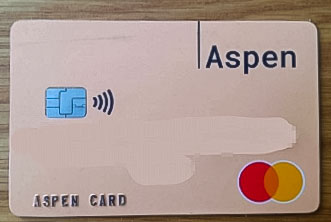In our research for Migrants and Solidarities on ‘Dispersal and deservingness in Northern England’, Mette Louise Berg and I have been working collaboratively with a team of co-researchers who have lived experience of the asylum system. Early on in our group discussions, we reflected on how people seeking asylum in the UK are not deemed by the state to be ‘deserving’ of the right to work, to have a bank account, or to access mainstream welfare support alongside other UK residents. Instead, people in the asylum system who need support are expected to live on just £39.63 (€46.88) a week, which is provided via an ‘Aspen card’ (a kind of prepaid visa debit card). The money, as Hedi (one of the co-researchers) put it, is ‘just enough that we don’t die’. In this blog, some of the co-researchers share their reflections on these issues through text and video.
By Abby, Faith, Misbah Almisbahi, Nel and Sanaa El-Khatib
*
Today I would like to invite you to my world, the world of people that have been asylum seekers and the world of some people still in the process. The lives of asylum seekers are mostly about hopping from one place of free food to the other, and trying to find bargains and free clothes. Most times I don’t, we don’t, find the right sizes. Most things don’t match. And when I come out of the house wearing that, the stares make me wish the ground would swallow me in that moment. Most people don’t ask if I’m okay, if I need help finding the right size of clothing or the proper shoes, they’re quick to judge without knowing the real story – what I ate before coming out, how I had to calculate and miscalculate to make sure I had enough food, laundry and toiletries for the week or month. Today I want to let you reading this blog know that asylum seekers live on £40 a week rounded off. It is in that £40, or a total of £160 a month, where we have to balance between bus fare, food, toiletries and perfumes. Truth be told, it doesn’t always work. It’s not enough, especially for women who need extra toiletries. They said ‘buy in big quantities all at once and maintain the groceries for the month’. Oh, how I have tried that to no avail! I did it and after having spent all the money on loads of food and a few toiletries, I realised I had no money for data. In that month, I had no way of responding to emails from solicitors quickly, if I missed anybody’s call I could not call them back, I had no way of finding my way if I had an appointment in a new place. It was tough. And the sad truth of the matter is that is how most asylum seekers live every day. In the following weeks I had to do it differently, this time with an intention of getting a new warm coat after food. I put £10 worth of prepaid data as asylum seekers can’t get contracts to have it easier. I did, it was 4GB worth of data and calls and minutes. I got my shopping and when it was time to get my very first new warm coat, my internet ran out. I needed it as it was the only way I could do my English homework. Instead of getting my dream coat, I got more internet. And the cycle continues. The asylum seekers’ way of life is of constant sacrifice, give up food for clothes, clothes for data, data for bus fares and it goes on and on. Trying to normalise the abnormal. One question we should all ask is: in all this travail, what’s our coping mechanism, is our mental health in check? Asylum seekers live the other way round, always in a survival mode. Most times when some get food, the first instinct is to save for tomorrow without the hunger of today being filled or satisfied. Not having enough money is not the only problem surrounding asylum seekers’ financial dilemma. We are in a country where many people are hostile towards people seeking sanctuary, and with our ASPEN cards we stand out in the shops. I have experienced at first hand, and have carefully observed, the stigma in shops. At first glance the attendee is all lovely and smiling till it’s paying time. Once that Aspen card in all its visible difference comes out, the environment quickly changes from ten to zero. The smiles became frowns. All you want to do in that instance is run, but you have to wait for your items. It’s not easy but it’s the reality of asylum seekers – the stigma, the inadequate support. The interesting fact about this is that if I go back where I was treated that way with a normal bank account – changed status – the frowns are no more. Wait a minute, I’m still the same person that held that Aspen card a few months back, the same person that you made feel belittled. My feelings, my emotions, my mental health are still the same. The only difference is the piece of paper. This is one side of the world of asylum seekers. My confession, an asylum seeker’s confession.
*

*
Asylum seekers, especially families, face many problems in their lives. One of these problems is opening a bank account. Having a bank account is essential. It makes life a lot easier. How many times have you looked for something but have only seemed to find it online? How many times have you tried buying something but realised it’s cheaper online? Asylum seekers are unable to experience this advantage. Not having a bank account can prevent asylum seekers from doing many things they want. Having WiFi at home is essential for everyday life for children and adults. For example, for education, entertainment and to stay in contact with family and friends. Many things are only accessible through owning a debit card. As we are aware, asylum seekers already suffer with financial difficulties. They therefore rely on cheaper alternatives, which sometimes can only be found online. However, due to the fact that they are not allowed to open a bank account, they have no option but to travel further afield, outside of the places they live, to find cheap items. I believe this is completely unfair.
*
The question is about deservingness. Who deserves to get what and why? And what factors are used to consider the treatment one gets. Oh! Because you have travelled on a journey for safety, to seek sanctuary, somehow you don’t deserve much. Somehow, the correct way to treat you is by seeing you as less of a human in all things. No one deserves to be treated this way, like they are nothing. To be made to feel inferior, just because they are an ‘asylum seeker’. The government dehumanises asylum seekers, thinks nothing of us, and this has blindly influenced some people to think and see sanctuary seekers as lesser. As Sanaa said in one of our group meetings, ‘When someone says, “no, you are an asylum seeker”, he only judges you because you are an “asylum seeker”. In their eyes “You are supposed to be this or that way”. “You don’t deserve this or that”. “Your children don’t deserve this or that”. No one deserves to be treated this way, like they are nothing.’ Yes, as Misbah said, ‘people around us just named us “asylum seekers”’. They see us in a certain way, think of us in a certain way, but our names are not ‘asylum seeker’. We have names too. We have identities beyond just being ‘asylum seekers’. And we deserve, like any other person here, to be treated the same.

